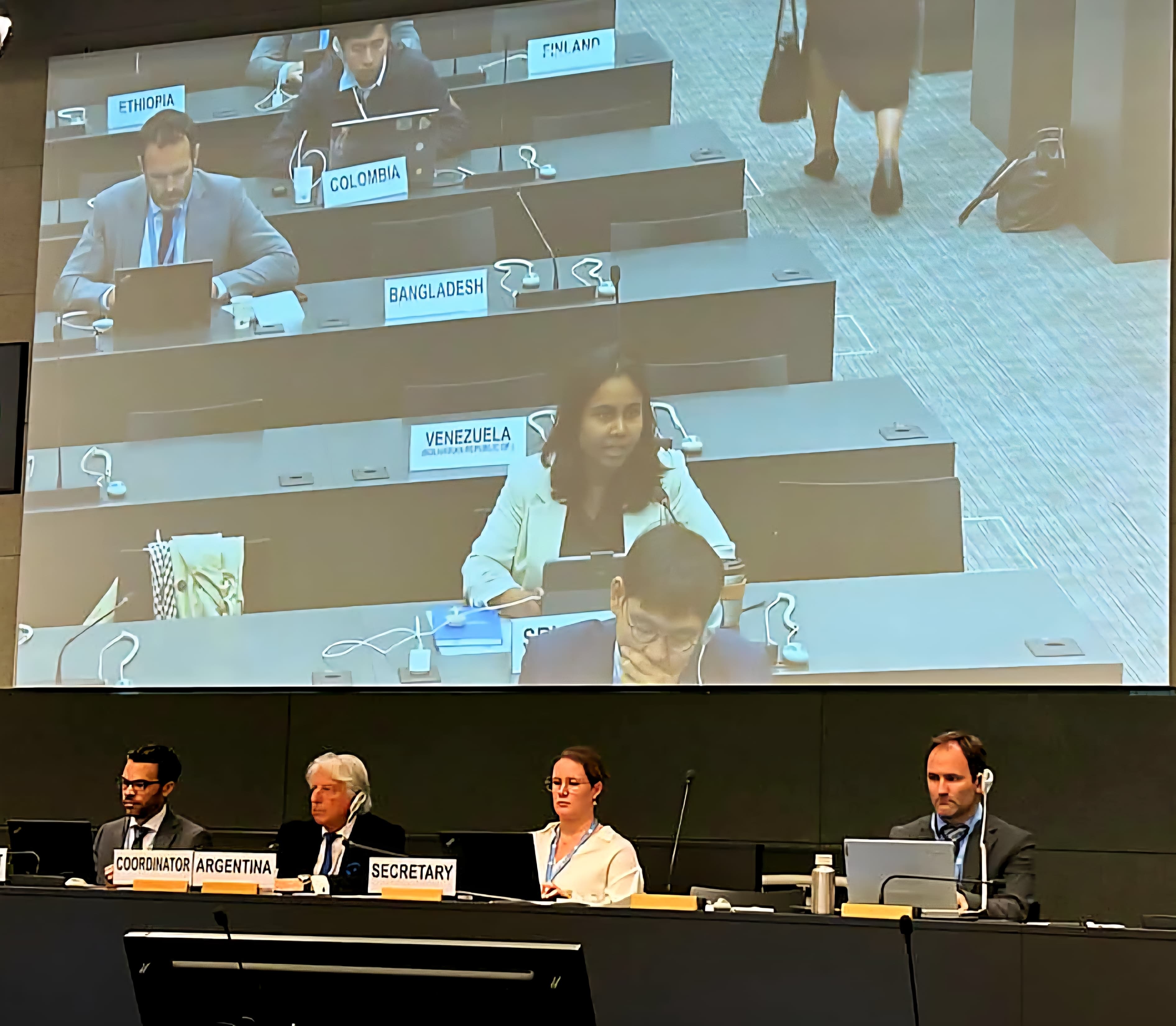
Mr. Coordinator,
I would also like to join others to appreciate the manner that you guide the discussion in this Subsidiary Body.
Sri Lanka wishes to underscore that discussing the key terms and definitions and their limitations should not prejudge or hinder any future negotiations of a comprehensive legally binding instrument in PAROS.
The existing normative and legal framework governing outer space security has not evolved at the same pace to address the rapidly increasing threats posed by technical advancements and their consequences.
Therefore, it is essential that the evolution of space law should align with current and future realities and emerging threats in the outer space domain and must consider the gaps in the existing legal regime in all aspects.
Sri Lanka has been engaging for decades in advocating for a legally binding instrument in PAROS. UNGA resolution 79/19 titled ‘prevention of an arms race in outer space’ which is presented by Sri Lanka together with Egypt annually emphasizes “the necessity of further measures with appropriate and effective provisions for verification to prevent an arms race in outer space” while referring to the important work carried out so far in multilateral fora on outer space disarmament. We understand that the current challenges and complexities of definition on weapon in outer space and key concepts and verification should be addressed in a very comprehensive and inclusive manner and would not block the ultimate goals of prevention of arms race in outer space.
As emphasized by the Outer Space Treaty, space is to be used for peaceful purposes, and therefore, legally binding provisions prohibiting all types of weapons in outer space considering the current and future potentials, should be sufficiently broad enough to cover any type of weapons including but not limited to ground-based anti-satellite (ASAT) systems that target space assets, dual- use technologies such as satellites with civilian and military applications, any space systems with civilian applications which is weaponizable, Autonomous Weapons Systems (AWS) integrating Artificial Intelligence (AI), and cyber weapons targeting space assets’ ground control stations or satellite command systems etc.
As entrusted in the Outer Space Treaty ‘exploration and use of outer space shall be carried out for the benefit and in the interest of all countries and shall be the province of all mankind’.
It is also essential to give due consideration to the voice of developing countries that rely on peaceful uses of outer space and space-based assets, particularly satellite technology for communication, transport, disaster management, and climate impact monitoring and resilience as destructive impact on such systems could paralyze civilian life. Regional consultations and dialogues particularly among the non-spacefaring states would be essential to ensure inclusivity when discussing these aspects in future.
Sri Lanka also takes this opportunity to underscore that weaponizing of outer space and space debris created by outer space activities would disproportionately affect all states.
It is the responsibility of all States to ensure that outer space remains a shared heritage of humankind, free from conflict and accessible to all nations for peaceful purposes.
Thank you
